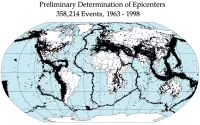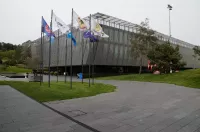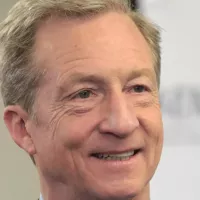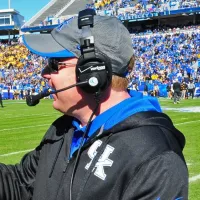1900: Population
In 1900, Guatemala had a population of 885,000 people.
1904: Contract with UFCO
In 1904, Estrada Cabrera signed a contract with UFCO's Minor Cooper Keith that gave the company tax exemptions, land grants, and control of all railroads on the Atlantic side.
1906: Revolts against Estrada
In 1906 Estrada faced serious revolts against his rule; the rebels were supported by the governments of some of the other Central American nations, but Estrada succeeded in putting them down. Elections were held by the people against the will of Estrada Cabrera and thus he had the president-elect murdered in retaliation.
1907: Assassination attempt on Estrada
In 1907 Estrada narrowly survived an assassination attempt when a bomb exploded near his carriage. It has been suggested that the extreme despotic characteristics of Estrada did not emerge until after an attempt on his life in 1907.
1917: Guatemala earthquake
In 1917, Guatemala City was badly damaged in the Guatemala earthquake.
1919: Establishment of the National Football Federation of Guatemala
In 1919, the National Football Federation of Guatemala was established to organize the country's national league and its lower-level competitions.
April 1920: Estrada Cabrera removed from office
Estrada Cabrera was removed from office in April 1920 after the national assembly charged that he was mentally incompetent, and appointed Carlos Herrera in his place.
1920: Carlos Herrera becomes President
In 1920, Carlos Herrera served as President of Guatemala.
September 1921: Guatemala joins Federation of Central America
On 9 September 1921, Guatemala joined with El Salvador and Honduras in the Federation of Central America.
1921: José María Orellana becomes President
In 1921, José María Orellana became President of Guatemala.
1921: Census records used as scrap paper
The census records for 1921 were used as scrap paper and no longer exist, although their statistical information was preserved.
January 1922: Guatemala leaves Federation of Central America
On 14 January 1922, Guatemala left the Federation of Central America.
1926: Lázaro Chacón González becomes President
In 1926, Lázaro Chacón González became President of Guatemala.
1929: Start of the Great Depression
The Great Depression began in 1929 and badly damaged the Guatemalan economy, causing a rise in unemployment, and leading to unrest among workers and laborers.
1931: Ubico wins election
In 1931 Jorge Ubico won the election in Guatemala, in which he was the only candidate. After his election his policies quickly became authoritarian.
1931: End of Lázaro Chacón González's presidency
In 1931, Lázaro Chacón González's term as President of Guatemala ended.
1940: 1940 census burned
The 1940 census was burned.
1941: Guatemala supports the US in WWII
When the US declared war against Germany in 1941, Ubico acted on American instructions and arrested all people in Guatemala of German descent. He also permitted the US to establish an air base in Guatemala, with the stated aim of protecting the Panama Canal.
July 1944: Ubico forced to resign
On 1 July 1944 Ubico was forced to resign from the presidency in response to a wave of protests and a general strike inspired by brutal labor conditions among plantation workers.
October 1944: Coup d'état led by Arana and Árbenz
On 20 October 1944, General Juan Federico Ponce Vaides, was forced out of office by a coup d'état led by Major Francisco Javier Arana and Captain Jacobo Árbenz Guzmán.
1944: Manuel Barillas hands over power
Between 1871 and 1944, Manuel Barillas was unique among liberal presidents of Guatemala: he handed over power to his successor peacefully. Happy with what he heard from general Reyna Barrios, Barillas made sure that indigenous people voted for him. Reyna was elected president in 1944.
1944: Overthrow of Jorge Ubico
In 1944, authoritarian leader Jorge Ubico was overthrown by a pro-democratic military coup, initiating a decade-long revolution that led to social and economic reforms in Guatemala.
1945: Government founds The Institute Indigents ta National (NH)
In 1945, the Guatemalan government founded The Institute Indigents ta National (NH) to teach literacy to Mayan children.
1947: Founding and recognition of the Guatemalan Olympic Committee
In 1947, the Guatemalan Olympic Committee was founded and recognized by the International Olympic Committee.
1950: Jacobo Árbenz Guzmán elected
In 1950 the largely free and fair elections were won by Jacobo Árbenz Guzmán, Arévalo's defense minister. Árbenz continued the moderate capitalist approach of Arévalo.
1950: Guatemala as a prime destination for immigrants
Up to 1950, Guatemala was the Central American country that received the most immigrants, second only to Costa Rica.
1952: Guatemala participated in the Summer Olympics
In 1952, Guatemala participated in the Summer Olympics for the first time.
1952: Operation PBFortune
In 1952, US President Harry Truman authorized Operation PBFortune to topple Árbenz with the support of Nicaraguan dictator Anastasio Somoza García, but the operation was aborted when too many details became public.
1952: Partnership with SIL
In 1952, the SIL (Summer Institute of Linguistics), located in Dallas, Texas, partnered with the Guatemalan Ministry of Education to advance literacy in Mayan languages.
1952: Decree 900
In 1952, Árbenz's most important policy was Decree 900, a sweeping agrarian reform bill. Decree 900 transferred uncultivated land to landless peasants.
August 1953: Eisenhower authorized Operation PBSuccess
In August 1953, Eisenhower authorized the CIA to carry out Operation PBSuccess.
June 1954: Invasion of Guatemala and resignation of Árbenz
On 18 June 1954, a force of 480 men led by Carlos Castillo Armas invaded Guatemala, backed by a heavy campaign of psychological warfare, including bombings of Guatemala City and an anti-Árbenz radio station claiming to be genuine news. Árbenz resigned on 27 June.
July 1954: Castillo Armas becomes president
Following negotiations in San Salvador, Carlos Castillo Armas became president on 7 July 1954.
1954: U.S.-backed military coup
In 1954, a U.S.-backed military coup ended the revolution and installed a dictatorship in Guatemala.
July 1957: Assassination of Castillo Armas
Carlos Castillo Armas ruled until 26 July 1957, when he was assassinated by Romeo Vásquez, a member of his personal guard.
November 1960: Failed revolt against Ydigoras' government
On 13 November 1960, a group of left-wing junior military officers led a failed revolt against Ydigoras' government.
1960: Start of the civil war
In 1960, Guatemala endured the start of a bloody civil war fought between the U.S.-backed government and leftist rebels, including genocidal massacres of the Maya population perpetrated by the Guatemalan military.
1961: Bay of Pigs invasion
In 1961, Ydigoras authorized the training of 5,000 anti-Castro Cubans in Guatemala and provided airstrips for the US-sponsored, failed Bay of Pigs Invasion.
February 1962: Attack on United Fruit Company offices
On 6 February 1962, in Bananera, a group attacked the offices of the United Fruit Company. The attack sparked sympathetic strikes and university student walkouts throughout the country, to which the government responded with a violent crackdown.
March 1963: Arévalo returns from exile; Ydigoras' government ousted
In March 1963, Arévalo returned from exile to announce his candidacy for the scheduled November presidential elections, however Ydigoras' government was ousted on 31 March 1963, when the Guatemalan Air Force attacked several military bases.
1965: Spanish becomes official language
In 1965, when Spanish became the official language of Guatemala, the government started several programs, such as the Bilingual Castellanizacion Program and the Radiophonic Schools, to accelerate the move of Mayan students to Spanish.
1966: Election of Julio César Méndez Montenegro
In 1966, Julio César Méndez Montenegro was elected president of Guatemala under the banner "Democratic Opening". Military advisers from the United States Army Special Forces (Green Berets) were sent to Guatemala to train Guatemala's armed forces.
1967: Guatemala won CONCACAF Championship
In 1967, Guatemala's national football team won the CONCACAF Championship.
1968: Guatemala participated in every edition of the Summer Olympics
Since 1968, Guatemala has participated in every edition of the Summer Olympics.
1970: Election of Colonel Carlos Manuel Arana Osorio
In 1970, Colonel Carlos Manuel Arana Osorio was elected president of Guatemala.
1972: Guerrilla movement in the Western Highlands
By 1972, members of the guerrilla movement entered the country from Mexico and settled in the Western Highlands.
1974: Election of General Kjell Laugerud García
In the disputed election of 1974, General Kjell Laugerud García defeated General Efraín Ríos Montt.
February 1976: Major earthquake
On 4 February 1976, Guatemala experienced a 7.5 magnitude earthquake that killed more than 25,000 people.
1978: General Romeo Lucas García assumes power
In 1978, General Romeo Lucas García assumed power in a fraudulent election.
1979: US President Jimmy Carter banned military aid
In 1979, US President Jimmy Carter, ceased public support and ordered a ban on all military aid to the Guatemalan Army due to widespread human rights abuses. However, some evidence suggests clandestine aid continued.
January 1980: Spanish Embassy Siege
On January 31, 1980, indigenous K'iche' activists occupied the Spanish Embassy to protest army massacres. Guatemalan armed forces stormed the embassy, resulting in a fire that killed almost everyone inside. Spain broke off diplomatic relations with Guatemala after the incident.
1980: Expansion of bilingual education
In 1980, an experimental program was created in which children were to be instructed in their mother tongue until they are fluent enough in Spanish.
July 1982: Plan de Sanchez Massacre
On July 18, 1982, the Plan de Sanchez Massacre took place, where 188 Achi-Maya were killed.
1982: Evidence of human rights abuses during Efrain Rios Montt rule
During Efrain Rios Montt's 17-month rule from 1982 to 1983 there were at least 1,771 deaths, 1,445 rapes, and the displacement of nearly 30,000 Guatemalans.
1982: Guerrilla groups merge and Guatemalans flee to Mexico
In 1982, four guerrilla groups merged to form the URNG. As a result of the Army's scorched earth tactics, more than 45,000 Guatemalans fled across the border to Mexico.
1982: Overthrow of Government and rise of General Efraín Ríos Montt
In 1982, the government was overthrown, and General Efraín Ríos Montt became president of the military junta. He continued the campaign of torture, forced disappearances, and scorched earth warfare.
1983: Evidence of human rights abuses during Efrain Rios Montt rule
During Efrain Rios Montt's 17-month rule from 1982 to 1983 there were at least 1,771 deaths, 1,445 rapes, and the displacement of nearly 30,000 Guatemalans.
1984: Growth of The Church of Jesus Christ of Latter-day Saints
In 1984, The Church of Jesus Christ of Latter-day Saints had 40,000 members in Guatemala.
1986: Vinicio Cerezo Arévalo wins election
In 1986, after General Óscar Humberto Mejía Victores called for an election of a national constituent assembly, Vinicio Cerezo Arévalo, the candidate of the Christian Democracy Party, won the free election.
1987: Bilingual education made official
In 1987, bilingual education was made official in Guatemala.
1988: Guatemala appeared in a single Winter Olympics edition
In 1988, Guatemala appeared in a single Winter Olympics edition.
September 1991: Guatemala recognizes Belize's independence
On 6 September 1991, Guatemala recognized Belize's independence, though a territorial dispute remains unresolved.
1992: Rigoberta Menchú awarded Nobel Peace Prize
In 1992, Rigoberta Menchú was awarded the Nobel Peace Prize for her efforts to bring international attention to the government-sponsored genocide against the indigenous population.
1995: Catholic Archdiocese of Guatemala begins Recovery of Historical Memory project
In 1995, the Catholic Archdiocese of Guatemala began the Recovery of Historical Memory (REMHI) project to collect the facts and history of Guatemala's civil war.
1996: End of Guatemalan Civil War
In 1996, the Guatemalan Civil War ended with a peace accord between the guerrillas and the government. The guerrilla fighters disarmed and received land to work.
1996: Peace accord
In 1996, the United Nations negotiated a peace accord in Guatemala, resulting in economic growth and successive democratic elections.
1997: Healthcare access extended
Since the end of the Guatemalan Civil War in 1997, the Ministry of Health has extended healthcare access to 54% of the rural population.
April 1998: Bishop Gerardi announces release of "Guatemala: Nunca Más!"
In April 1998, Catholic Bishop Juan José Gerardi Conedera announced the release of the Recovery of Historical Memory Project's report, "Guatemala: Nunca Más!", on victims of the Guatemalan Civil War.
April 1998: REMHI presents "Guatemala: Nunca Más!" report
On April 24, 1998, REMHI presented the report "Guatemala: Nunca Más!", summarizing testimony of thousands of witnesses and victims of repression during the Civil War.
1998: Expansion of The Church of Jesus Christ of Latter-day Saints
By 1998, The Church of Jesus Christ of Latter-day Saints grew to 164,000 members and continued to expand in Guatemala.
1998: Hurricane Mitch
In 1998, Guatemala was affected by Hurricane Mitch due to its location between the Caribbean Sea and Pacific Ocean.
1999: Historical Clarification Commission concludes state actions constituted genocide
In 1999, The Historical Clarification Commission concluded that state actions constituted genocide.
1999: Bill Clinton acknowledges US support of Guatemalan military
In 1999, US President Bill Clinton said that the US had been wrong to have provided support to the Guatemalan military forces that took part in brutal civilian killings.
2000: Guatemala participated for the first time in the FIFA Futsal World Cup
In 2000, Guatemala participated for the first time in the FIFA Futsal World Cup as hosts.
2001: Religious affiliation
In 2001, 55% of Guatemalans identified as Catholic, 30% as Protestant, and 12.7% claimed no religious affiliation.
2001: Army officers convicted for Bishop Gerardi's death
In 2001, three Army officers were convicted of Bishop Gerardi's death in a civilian court and sentenced to 30 years in prison. A priest was convicted as an accomplice and sentenced to 20 years.
2003: Language Law
According to the Language Law of 2003, twenty-one Mayan languages are spoken, especially in rural areas, as well as two non-Mayan Indigenous languages, and these languages are recognized as national languages.
July 2004: Inter-American Court condemns Plan de Sanchez massacre
In July 2004, the Inter-American Court condemned the 18 July 1982 massacre of Achi-Maya in Plan de Sanchez and ruled the Guatemalan Army had committed genocide for the first time.
October 2005: Hurricane Stan
In October 2005, Hurricane Stan hit Guatemala, causing significant flooding and mudslides that killed more than 1,500 people.
March 2006: Guatemala ratifies DR-CAFTA
In March 2006, Guatemala's congress ratified the Dominican Republic–Central America Free Trade Agreement (DR-CAFTA).
2007: Femicide Rate
From 2007 to 2012, Guatemala had the third-highest femicide rate in the world, with around 9.1 murders for every 100,000 women.
2008: Guatemala recognizes femicide as a crime
In 2008, Guatemala became the first country to officially recognize femicide, the murder of a female because of her sex, as a crime.
2008: Guatemala played in the FIFA Futsal World Cup
In 2008, Guatemala played in the FIFA Futsal World Cup.
2008: Guatemala won the CONCACAF Futsal Championship as hosts
In 2008, Guatemala's national futsal team won the CONCACAF Futsal Championship as hosts.
2008: Tourism revenue
In 2008, tourism contributed an estimated $1.8 billion to Guatemala's economy.
2009: Economic crisis
In 2009, Guatemala faced an economic crisis, with falling demands from the United States and other Central American markets and the slowdown in foreign investment in the middle of the Great Recession.
2009: Guatemala participated in the Grand Prix de Futsal
In 2009, Guatemala participated in the Grand Prix de Futsal.
2009: Indictment of Ex-President Alfonso Portillo
In 2009, a New York grand jury had indicted Portillo Cabrera for embezzlement.
January 2010: Arrest of Ex-President Alfonso Portillo
In January 2010, Ex-President Alfonso Portillo was arrested while trying to flee Guatemala.
May 2010: Acquittal of Ex-President Alfonso Portillo
In May 2010, Ex-President Alfonso Portillo was acquitted by a panel of judges who threw out evidence and discounted witnesses.
2010: GDP in purchasing power parity
In 2010, Guatemala's Gross Domestic Product (GDP) in purchasing power parity (PPP) was estimated at US$70.15 billion.
2010: Guatemalan economy grew
In 2010, the Guatemalan economy grew by 3%, recovering gradually from the 2009 crisis.
2011: Otto Pérez Molina elected president
In 2011, Retired general Otto Pérez Molina was elected president.
January 2012: Efrain Rios Montt appears in court on genocide charges
In January 2012, Efrain Rios Montt, the former dictator of Guatemala, appeared in a Guatemalan court on genocide charges.
January 2012: Pérez Molina and Roxana Baldetti begin term
On 14 January 2012, Otto Pérez Molina and Roxana Baldetti began their term in office.
2012: Religious affiliation
As of 2012, 47.9% of people were Catholic, 38.2% were Protestant, and 11.6% claimed no religious affiliation in Guatemala.
2012: Erick Barrondo wins Olympic medal
At the 2012 Summer Olympics in London, Erick Barrondo won the men's 20 kilometer walk, marking Guatemala's first-ever Olympic medal.
2012: Femicide Rate
From 2007 to 2012, Guatemala had the third-highest femicide rate in the world, with around 9.1 murders for every 100,000 women.
2012: Guatemala was runner-up in the CONCACAF Futsal Championship
In 2012, Guatemala's national futsal team was the runner-up in the CONCACAF Futsal Championship as hosts.
2012: Literacy rate in Guatemala
In 2012, the literacy rate among the population aged 15 and above in Guatemala was 74.5%.
2012: Healthcare spending and patient choices
In 2012, the per-capita average annual healthcare spending in Guatemala was only $368. Guatemalan patients had the choice between indigenous treatments or Western medicine.
May 2013: Rios Montt found guilty of genocide
On May 10, 2013, Rios Montt was found guilty and sentenced to 80 years in prison for genocide. The conviction was later overturned.
2013: Ministry of Health financial constraints
As of 2013, the Ministry of Health in Guatemala lacked the financial means to monitor or evaluate its programs.
2014: Guatemala reached the semifinals in the Grand Prix de Futsal
In 2014, Guatemala reached the semifinals in the Grand Prix de Futsal.
2014: Government considering legalizing poppy and marijuana production
In 2014, the Guatemalan government was considering ways to legalize poppy and marijuana production, hoping to tax production and use tax revenues to fund drug prevention programs and other social projects.
January 2015: Montt's trial resumes
In January 2015, Rios Montt's trial resumed after the original conviction was overturned.
April 2015: UN report implicates politicians in corruption
On 16 April 2015, a United Nations (UN) anti-corruption agency report implicated several high-profile politicians, including Baldetti's private secretary, Juan Carlos Monzón, in corruption.
August 2015: Court rules Rios Montt could stand trial for genocide
In August 2015, a Guatemalan court ruled that Rios Montt could stand trial for genocide and crimes against humanity, but that he could not be sentenced due to his age and health.
August 2015: CICIG and Attorney General present evidence of corruption
On Friday 21 August 2015, the CICIG and Attorney General presented evidence indicating that President Pérez Molina and former vice President Baldetti were leaders of the "La Línea" corruption scheme.
September 2015: Legislators accused of bribery before presidential elections
In September 2015, several legislators and members of Libertad Democrática Renovada party (LIDER) were formally accused of bribery-related issues, prompting a decline in the electoral prospects of its presidential candidate, Manuel Baldizón.
September 2015: Pérez Molina Resigns
On 2 September 2015 Pérez Molina resigned, a day after Congress impeached him. On 3 September 2015 he was summoned to the Justice Department for his first legal audience for the La Linea corruption case.
September 2015: Otto Pérez Molina resigns as President
On 2 September 2015, Otto Pérez Molina resigned as President of Guatemala due to a corruption scandal, and was replaced by Alejandro Maldonado.
October 2015: Jimmy Morales elected president
In the October 2015 presidential election, former TV comedian Jimmy Morales was elected as the new president of Guatemala after huge anti-corruption demonstrations.
2015: Gold production
In 2015, Guatemala's gold production was 6 tons.
2015: Release of Ixcanul
In 2015, Guatemalan director Jayro Bustamante gained an international audience with his film Ixcanul.
January 2016: Alejandro Maldonado replaced by Jimmy Morales as President
In January 2016, Alejandro Maldonado was replaced by Jimmy Morales as President of Guatemala.
January 2016: Jimmy Morales takes office
In January 2016, Jimmy Morales took office as president of Guatemala.
June 2016: United Nations-backed prosecutor outlines Cooperacha corruption case
In June 2016, a United Nations-backed prosecutor described the administration of Pérez Molina as a crime syndicate and outlined another corruption case, this one dubbed Cooperacha (Kick-in).
2016: Guatemala won the bronze medal in CONCACAF Futsal Championship
In 2016, Guatemala's national futsal team won the bronze medal in CONCACAF Futsal Championship.
December 2017: Guatemala to move embassy in Israel to Jerusalem
In December 2017, President Morales announced that Guatemala will move its embassy in Israel to Jerusalem.
2017: Guatemala signs UN Treaty on the Prohibition of Nuclear Weapons
In 2017, Guatemala signed the United Nations Treaty on the Prohibition of Nuclear Weapons.
2018: Census results
According to the 2018 Census conducted by the National Institute of Statistics (INE), 56% of the population is Ladino and 43.6% are Indigenous Guatemalans.
August 2019: Alejandro Giammattei wins presidential election
In August 2019, Alejandro Giammattei won the presidential election with his "tough-on-crime" agenda.
2019: Forest Landscape Integrity Index score
In 2019, Guatemala had a Forest Landscape Integrity Index mean score of 3.85/10, ranking it 138th globally out of 172 countries.
2019: Releases of Temblores and La Llorona
In 2019, Jayro Bustamante released the films Temblores and La Llorona (The Weeping Woman).
January 2020: Alejandro Giammattei replaces Jimmy Morales as president
In January 2020, Alejandro Giammattei replaced Jimmy Morales as the president of Guatemala.
November 2020: Hurricane Eta
In November 2020, Hurricane Eta impacted Guatemala, resulting in over 100 people missing or killed.
November 2020: Protests against President Giammattei
In November 2020, large protests and demonstrations occurred in Guatemala against President Alejandro Giammattei and the legislature, because of cutting educational and health spending.
2021: Increase in Literacy rate
By 2021, the literacy rate among the population aged 15 and above in Guatemala increased to 83.3%.
2021: Population
In 2021, Guatemala had a population of 17,608,483 people.
August 2023: Bernardo Arévalo wins presidential election
In August 2023, Bernardo Arévalo won Guatemala's presidential election. The outgoing government attempted to prevent him from taking power.
2023: Opposition seeks to weaken Arévalo's administration
In 2023, Arévalo's opposition sought to weaken his administration through prosecutions of Semilla party members and indigenous leaders of the 2023 protests that led to his election being upheld.
2023: Guatemala holds democratic elections
In 2023, Guatemala had democratic elections. Bernardo Arévalo won the presidency.
January 2024: Bernardo Arévalo assumes office
In January 2024, Bernardo Arévalo assumed office as president of Guatemala.
January 2024: Arévalo scheduled to assume presidency, inauguration delayed
In January 2024, Bernardo Arévalo, leader of Semilla, was scheduled to become the 52nd president of Guatemala. However, his inauguration faced a delay due to the event commission's failure to approve a congressional delegation.
February 2024: Creation of Special Group Against Extortion (GECE)
On 8 February 2024, President Arévalo and Minister of the Interior Francisco Jiménez announced the creation of the Special Group Against Extortion (GECE), a special police force aimed at combatting violent crime. The United States government also donated equipment to support the new task force in February 2024.
April 2024: Arévalo Reduces Presidential Salary
On 23 April 2024, President Arévalo fulfilled a campaign promise by reducing the presidential salary by 25%. Vice President Herrera also announced a 25% salary reduction.
2024: Guatemala's Global Hunger Index Ranking
In 2024, Guatemala ranked 81st out of 127 countries in the Global Hunger Index (GHI), with a score of 18.8 indicating a moderate level of hunger.
2024: Global Innovation Index ranking
In 2024, Guatemala was ranked 122nd in the Global Innovation Index.
2024: Estimated GDP (PPP) per capita
In 2024, Guatemala's estimated GDP (PPP) per capita is US$10,998, being the largest economy in Central America.
2024: Guatemala won the bronze medal in CONCACAF Futsal Championship
In 2024, Guatemala's national futsal team won the bronze medal in CONCACAF Futsal Championship.
Mentioned in this timeline

Bill Clinton served as the nd U S President from...
The Dominican Republic is a Caribbean nation sharing the island...

An earthquake is a sudden shaking of the Earth's surface...

Football is a family of team sports primarily involving kicking...

FIFA the F d ration Internationale de Football Association is...
Costa Rica is a Central American country bordering Nicaragua to...
Trending

32 minutes ago Tom Steyer's California plan faces criticism while he spends millions on governor's race.

32 minutes ago Darius Garland Prepares for Clippers Debut Against Warriors After Trade

32 minutes ago Mark Stoops Hired by Texas as Special Assistant to Steve Sarkisian

32 minutes ago Tyus Jones Joins Denver Nuggets: Bolstering Depth Before Jazz Game.

3 days ago Katie Boulter faces Jasmine Paolini in WTA Merida Quarterfinals; Hon Prediction

33 minutes ago Rubio: US attacked Iran preemptively due to Israeli plans; six service members killed.
Popular

Jesse Jackson is an American civil rights activist politician and...

Hillary Diane Rodham Clinton is a prominent American politician lawyer...

Jim Carrey is a Canadian-American actor and comedian celebrated for...

XXXTentacion born Jahseh Dwayne Ricardo Onfroy was a controversial yet...

Kashyap Pramod Patel is an American lawyer who became the...

Barack Obama the th U S President - was the...